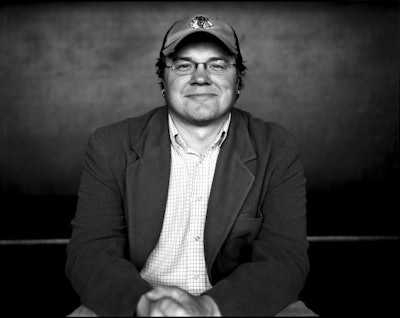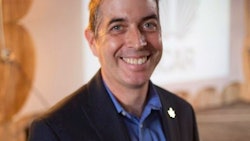
Photo by:Â Kelly Weime
An interview with Dan Linn, executive director, Illinois NORML
Illinois has been in the spotlight in the past couple months over its medical marijuana program, which former Governor Patrick Quinn signed into law in August 2013. The reason for all the attention? Questions quickly arose over the delay in issuing marijuana business licenses, which Quinn was supposed to do, but didn't, before leaving office at the end of the year … and then the sudden, and unexplained issuance of dozens of licenses by the state's newly elected governor, Bruce Rauner, this week.
Cannabis Business Times Editor Noelle Skodzinski talked about the status of the Prairie State's medical marijuana program and plans for further marijuana legalization  with Dan Linn, executive director of Illinois NORML (the Illinois chapter of the National Organization to Reform Marijuana Laws), which works toward the legalization and decriminalization of cannabis.
Noelle Skodzinski:Â Has Illinois NORML been involved in trying to implement the state's medical marijuana program? To what extent and what has that process been like?
Dan Linn: For years, we brought patients to the Capitol to lobby elected officials and have held monthly lobby days for our supporters to help push our agenda through the legislature. It has been a difficult process for many patients on their health, as well as trying to navigate the poltical process and dealing with timing issues. It was emotionally difficult for patients to hear for years that a lawmaker supported our cause, but would not vote for our bill for various reasons, usually a re-election.
Skodzinski:Â Can you comment on what's happening (and why) with Illinois' medical marijuana program right now? Do you anticipate we'll see lawsuits over the process?
Linn: I anticipate lawsuits due tothe amount of money, competitive nature of the application process and amount of lawyer involvement in the whole process. As of today, cultivation centers are starting to build out their facilities and dispensaries are waiting for medicine to become available.
Skodzinski:Â How long do you think it will be before Illinois patients can access medical marijuana?
Linn: Early to mid summertime–June/July.
Skodzinski:Â Do you know how many licenses for growers and dispensaries have yet to be awarded, and any idea when this is expected to happen?
Linn: They should be awarded in the next few weeks, three weeks at the latest. Eight licenses will be awarded after this review; three more licenses are available from districts nobody applied for.
Skodzinski:Â What other important issues are you and Illinois NORML working on?
Linn: Industrial hemp farming, legalizing cannabis for all adults, patients' rights, adding conditions, educating the public.
Skodzinski: Can you talk about what you'll be doing with your "2015 Make It Legal Campaign," what you're hoping to achieve and in what time frame?Â
Linn: We have just had a bill [Senate Bill 753] introduced to legalize cannabis for adults to grow 5 plants and possess 30 grams; our Make It legal Campaign is going to help our lobbying efforts, supporting lawmakers that help our cause. We are hoping to have cannabis legal for adults in the next 3 years, about the time when the pilot program is set to expired. (The medical cannabis pilot program expires Jan 1, 2018–four years from the date it took effect.)
Skodzinski: What are the chances for legalization for recreational use, and would you expect the establishment of a regulatory and taxable framework along with that, or are you aiming just for legalizing personal use and home cultivation?
Linn: Chances for legalization in 3 years is good if everyone that wants cannabis to be legal in Illinois started communicating those feelings to their elected officials. Industry folks can start hiring lobbyists and consultants (like me) to work toward this goal.
With additional resources we could see cannabis become legal much quicker than the medical law took due to limited resources and public lobbying of elected officials that medical cannabis in Illinois had to work with.
Legalizing cannabis for retails sales and cultivation would definitely be taxed, which would make it more attractive for the politicians and more likely to happen sooner.
Only legalizing for the private non-commercial production, while ideal for some consumers, probably won't happen because most cannabis consumers are not politically active. Government, in general, reacts slowly and only toward those who show up. Many cannabis consumers trust neither the government nor the process.
For this reason, it is the business folks who generally push policy, not just for cannabis. Ideally we would like to see cannabis available for purchase from licensed stores that have quality controls over the production and product to prevent mold, residual pesticides, etc. However we would also like to see the ability for consumers to be able to grow their own cannabis with minimal or no registration being required.



























